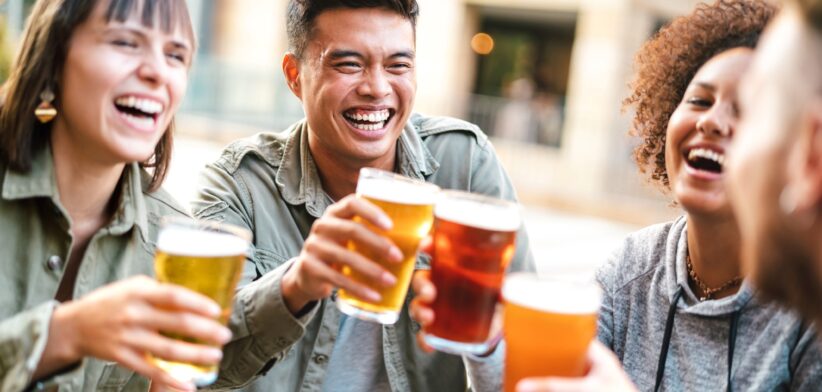Researchers have used drunk fruit flies to uncover why social drinking often makes humans happy, while drinking alone can trigger depression.
Kyung-An Han, a biologist at The University of Texas at El Paso said social settings influenced how individuals reacted to alcohol, yet there was no mechanistic study on how and why this occurred.
Professor Han said her team looked at the neurobiological process behind social drinking and how it boosted feelings of euphoria.
She said their new study, published in the journal Addiction Biology, pinpointed the region of the brain that was stimulated by social drinking, which may lead to a better understanding of how humans become vulnerable to Alcohol Use Disorder (AUD).
Professor Han said it turned out that tipsy fruit flies weren’t that different from intoxicated humans.
“Although they might seem like an unconventional choice from which to derive knowledge about human behaviour, these insects share about 75 percent of the same genes that cause human diseases.”
She said, using fruit flies, her team sought to demonstrate that ethanol, the alcohol in drinks, caused different reactions in solitary versus group settings and that dopamine, the brain molecule that played a role in pleasure, motivation and learning, was a key player for this phenomenon.
“The team’s experiments consisted of exposing fruit flies, either alone or in a group setting, to ethanol vapor and measuring their average speed to determine the degree of ethanol-induced response.
“While flies who ‘drank alone’ displayed a slight increase in movement, flies exposed to ethanol in a group setting displayed significantly increased speed and movement.”
Professor Han said the team then proceeded to test whether dopamine played a role in the flies’ response to ethanol.
“The team found that the flies, regardless of whether they had normal or increased levels of dopamine, had a similar reaction to ethanol in a solitary setting — a tiny increase in activity. But in social settings, the flies with increased dopamine showed even more heightened hyperactivity than usual.
“We demonstrated that both social settings and dopamine act together for the flies’ heightened response to ethanol.”








